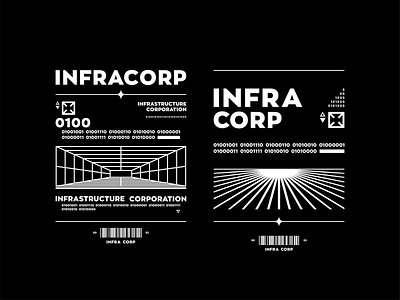Vehicles like Chevrolet Volt have generators that can power electric powertrain with no limitations and therefore should be counted as Extended Range Electric Vehicles. When the brakes are applied and wheels are locked, the tyres do not have to contend with the wheel rolling (providing no braking force) and braking repeatedly. In a hydraulic brake system, when the brake pedal is pressed, a pushrod exerts force on the piston(s) in the master cylinder, causing fluid from the brake fluid reservoir to flow into a pressure chamber through a compensating port. The pressure differential valve has two chambers (to which the hydraulic lines attach) with a piston between them. Although many of the lines were originally built by different companies, they were consolidated under the control of the Everett-Moore syndicate, a Cleveland-based group of investors. 1, block 2 contains a PI code (and is encoded with offset word C′), the group is one of 0B through 15B, and contains 21 bits of data.
 They don’t meet the definition of monopoly (one seller), because no one is forced to use them. Manufacturer has to discourage careless and unjustified use of range extender. Vehicle has to be recharged from external source for next commute or be functionally noticeably limited in battery depleted mode: for example, limited performance, extended range shorter than electric range and limited top speed - these shall ensure significantly superior emission reductions compared to PHEVs over lifetime of the vehicle. Vehicle that will handle secondary energy source as the main one shall not be counted as Extended Range EV but rather regular PHEV. There might be a buffering device like battery, capacitor of flywheel for kinetic energy recovery that can apply torque directly or with electric motor. More advanced vehicles might be able to adjust alternator load according to circumstances. For example, allow alternator to run without load while accelerating (drawing all required auxiliary power from the battery) and charging starter battery at accelerated rate when slowing down and braking.
They don’t meet the definition of monopoly (one seller), because no one is forced to use them. Manufacturer has to discourage careless and unjustified use of range extender. Vehicle has to be recharged from external source for next commute or be functionally noticeably limited in battery depleted mode: for example, limited performance, extended range shorter than electric range and limited top speed - these shall ensure significantly superior emission reductions compared to PHEVs over lifetime of the vehicle. Vehicle that will handle secondary energy source as the main one shall not be counted as Extended Range EV but rather regular PHEV. There might be a buffering device like battery, capacitor of flywheel for kinetic energy recovery that can apply torque directly or with electric motor. More advanced vehicles might be able to adjust alternator load according to circumstances. For example, allow alternator to run without load while accelerating (drawing all required auxiliary power from the battery) and charging starter battery at accelerated rate when slowing down and braking.
Battery likely is significantly larger - comparable to Plug in Hybrid Electric Vehicle. If any electric motor on board is able to apply torque to help the combustion engine that vehicle should be called Mild Hybrid Vehicle. Here, a minimum of two additional sensors are added to help the system work: these are a steering wheel angle sensor and a gyroscopic sensor. In 2004, the IRL modified their points scoring system again. A fully-integrated system works in both directions. Similarly to Hybrid Electric Vehicle, there is a small traction battery. This problem can happen in both 2WD and 4WD vehicles, whenever a driven wheel is placed on a surface with little traction or raised off the ground. Furthermore, unplugging a wheel speed sensor is another method of disabling most ESC systems. Such systems have in the past been sold as aftermarket accessories, but are today seldom seen in traffic. Almost all vehicles have a starter motor that will crank the engine. If battery is depleted a secondary energy source, usually combustion engine driven electric generator, will kick in and provide power for electric motor to continue journey. Subtype of BEV. This vehicle is propelled by electric motor which is mostly powered by energy stored in a battery.
 That delay is prevented by keeping some energy readily available in a battery, capacitor or flywheel. When DC power from the starting battery is applied to the solenoid, usually through a key-operated switch (the "ignition switch"), the solenoid engages a lever that pushes out the drive pinion on the starter driveshaft and meshes the pinion with the starter ring gear on the flywheel of the engine. Battery can also be removed and charged separately. This vehicle type can be used solely on electricity charged by plugging in or solely on electricity generated by fuel cell. It featured passive locking/unlocking, but traditional keyed starting of the vehicle. This type is actually electric vehicle that is powered by electric energy generated using onboard fuel cell. The term "solar vehicle" usually implies that solar energy is used to power all or part of a vehicle's propulsion. Alternative abbreviations: RExEV (Range Extended Electric Vehicle), REEV (Range Extended Electric Vehicle), BEVx. Alternative abbreviations: FCHV (Fuel Cell Hybrid Vehicle), FCV (Fuel Cell Vehicle), HFCV (Hydrogen Fuel Cell Vehicle), HFCEV (Hydrogen Fuel Cell Electric Vehicle).
That delay is prevented by keeping some energy readily available in a battery, capacitor or flywheel. When DC power from the starting battery is applied to the solenoid, usually through a key-operated switch (the "ignition switch"), the solenoid engages a lever that pushes out the drive pinion on the starter driveshaft and meshes the pinion with the starter ring gear on the flywheel of the engine. Battery can also be removed and charged separately. This vehicle type can be used solely on electricity charged by plugging in or solely on electricity generated by fuel cell. It featured passive locking/unlocking, but traditional keyed starting of the vehicle. This type is actually electric vehicle that is powered by electric energy generated using onboard fuel cell. The term "solar vehicle" usually implies that solar energy is used to power all or part of a vehicle's propulsion. Alternative abbreviations: RExEV (Range Extended Electric Vehicle), REEV (Range Extended Electric Vehicle), BEVx. Alternative abbreviations: FCHV (Fuel Cell Hybrid Vehicle), FCV (Fuel Cell Vehicle), HFCV (Hydrogen Fuel Cell Vehicle), HFCEV (Hydrogen Fuel Cell Electric Vehicle).
Comments
Post a Comment